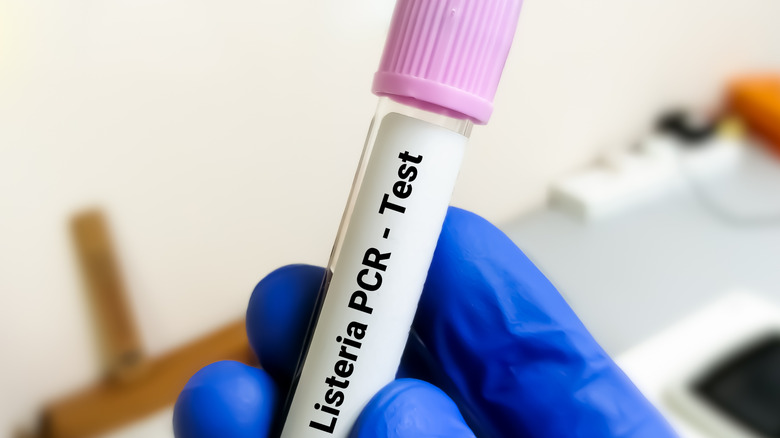Wegmans' Cheese Faces Recall Over Listeria Concerns — Here Are The 10 Impacted States
Heads up, Wegmans shoppers — the grocery store chain that was once involved in one of the strangest food recalls in U.S. history (That being frozen hash browns contaminated with fragmented golf balls) has once again been hit with another recall. This time, it's soft cheese that's causing the problem. The reason several of Wegman's cheese products have been recalled is that they might be contaminated with Listeria monocytogenes, which has the potential to cause serious foodborne illness.
Four products are affected, including Wegmans Assorted Cheese Flight (One pound, UPC: 2-77100-00000-0); Wegmans Caramel Apple Pecan-topped Brie Cheese (13 ounces, UPC: 2-77645-00000-3); Wegmans Grilling Camembert with Tapenade & Roasted Tomatoes (10 ounces, UPC: 2-77297-00000-0); and Wegmans Medium Camembert Soft Ripened Cheese (8.8 ounces, UPC: 77890-53515) with the best-by dates 7/26/25, 8/12/25, and 8/19/25.
The cheese was sold in Washington, D.C., Connecticut, Delaware, Maryland, Massachusetts, New Jersey, New York, North Carolina, Pennsylvania, and Virginia. The potentially contaminated products were available for sale between July 1 and August 12, 2025.
Why Listeria is so dangerous
Listeria monocytogenes has been the culprit in a number of food recalls with tragic fallout, including a dairy recall that caused multiple hospitalizations and two deaths, and a contaminated cantaloupe recall that killed 33 people. In addition to soft cheese and produce, Listeria monocytogenes can be found in fruit juice, deli meats, hot dogs, smoked fish, and sushi.
Listeriosis, the illness caused by this bacterium, frequently manifests with symptoms such as diarrhea, nausea, and vomiting — although it can also cause chills, fatigue, fever, and muscle or joint pain. It may also lead to stiffness in the neck, loss of balance, confusion, and even seizures. These symptoms can show up as late as two weeks after you've consumed a contaminated product.
If you're relatively healthy, a bout of Listeria can be treated with antibiotics and may not have any lasting effect, apart from a disinclination to eat whatever food originally made you so sick. But for the immune-compromised, elderly, or very young, however, symptoms may be far more severe, or even fatal. Additionally, listeriosis in pregnancy can affect the fetus and may even result in miscarriage. As a result, anyone who is or might be pregnant should avoid foods that are a potential source of this disease.

